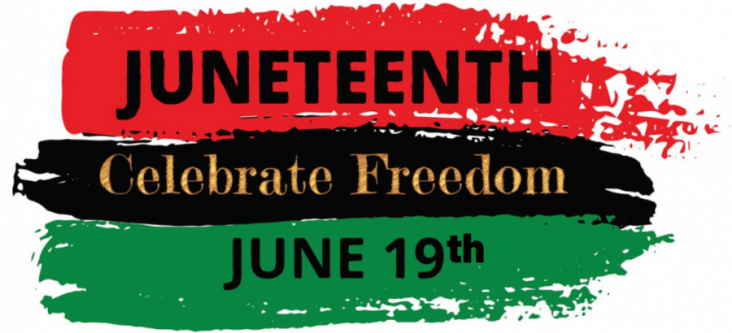Mosaic Templars Cultural Center Museum Director says Juneteenth can be ‘bigger catalyst’ for conversation about race
by June 18, 2020 12:44 pm 898 views

Friday, June 19 is the annual celebration known as Juneteenth, which recognizes the freedom provided to African-Americans after the Emancipation Proclamation became the law of the land.
Christina Shutt, the museum director for the Mosaic Templars Cultural Center, was interviewed by Roby Brock, Talk Business & Politics Editor-in-Chief, to discuss the significance of the holiday from a historical perspective and in the context of the local and national dialogue on race that is prevalent in the wake of the George Floyd protests.
The Mosaic Templars Cultural Center explores Arkansas’ African-American history, life, and culture and hosts the Arkansas Black Hall of Fame. The museum is dedicated to collecting, preserving, interpreting, and celebrating African-American history, culture and community in Arkansas from 1870 to the present, and informs and educates the public about black achievements – especially in business, politics and the arts.
You can access the Mosaic Templars Cultural Center at this link, which includes more information regarding Juneteenth.
Roby Brock: Christina, for those who may be slow to know, tell me what Juneteenth represents and how did people in Arkansas initially celebrate it? Was there one person or a group of citizens who put the first celebration together? What did that celebration look like?
Christina Shutt: Juneteenth is a celebration of the last enslaved people in Texas finding out that they had been freed by executive proclamation, also known as the Emancipation Proclamation. While the order took effect on January 1, 1863, it took two-and-a-half years for Union troops to arrive in Galveston, Texas and many plantation owners waited even longer until after the harvest to let their enslaved population know.
Much of these early celebrations were local ones marked by families attempting to locate one another, speak on the concerns of citizenship, and preserve their culture. Celebrations would have included readings of the Emancipation Proclamation, games, singing, and picnics. In 2005, the Arkansas Senate established the third Saturday in June as Juneteenth Independence Day and annually the Governor issues a proclamation celebrating Juneteenth.
Brock: What has been taking place since 2005 in Arkansas to raise awareness of Juneteenth and what’s on tap for this year?
Shutt: Since 2005, local celebrations have taken place around the state. Some of them include parades, picnics, speeches, church celebrations, and local dignitaries. Since the Mosaic Templars Cultural Center began to celebrate — we didn’t open to the public until September 2008 — we have had an annual open air festival on the historic west Ninth Street in downtown Little Rock which was the African American business district in Little Rock for 100-plus years.
The museum uses the festivities as a way to highlight African American-owned businesses, musical and visual artists, and as a way for communities to connect. In light of the ongoing public health crisis, we are excited to move Juneteenth to a virtual event streaming live on Facebook. This year will feature performances by Arkansas favorites such as Rodney Block, Akeem Kemp, and Bijoux as well as the multiple Grammy Award winning gospel group The Clark Sisters.
We’ll also have kid entertainment with Tommy Terrific as well as acknowledgements by elected officials throughout the state. Additionally, because the museum’s accreditation celebration had to be postponed, we’ll spend some time celebrating this monumental achievement.
Brock: In light of the state and national conversation regarding race that is happening right now, how can the Juneteenth celebration be an even bigger catalyst for advancing the conversation? Can it be? Should it be?
Shutt: Juneteenth can be an opportunity to be a bigger catalyst for advancing conversations about race and racism if we let it be more than just a day or a brief moment in history. In Ralph Ellison’s book Juneteenth he writes, “But what a feeling can come over a man just from seeing the things he believes in and hopes for symbolized in the concrete form of a man.” The persistent message of Juneteenth is one of hope —- that’s what the formerly enslaved people celebrated each year and that’s what African-Americans continue to celebrate today.
I hope that one day we truly will live in a nation that is free of the “-isms” — racism, sexism, ableism, etc. — that keep so many people marginalized and oppressed. That we will not just imagine or hope for an anti-racist world, but truly achieve it.
